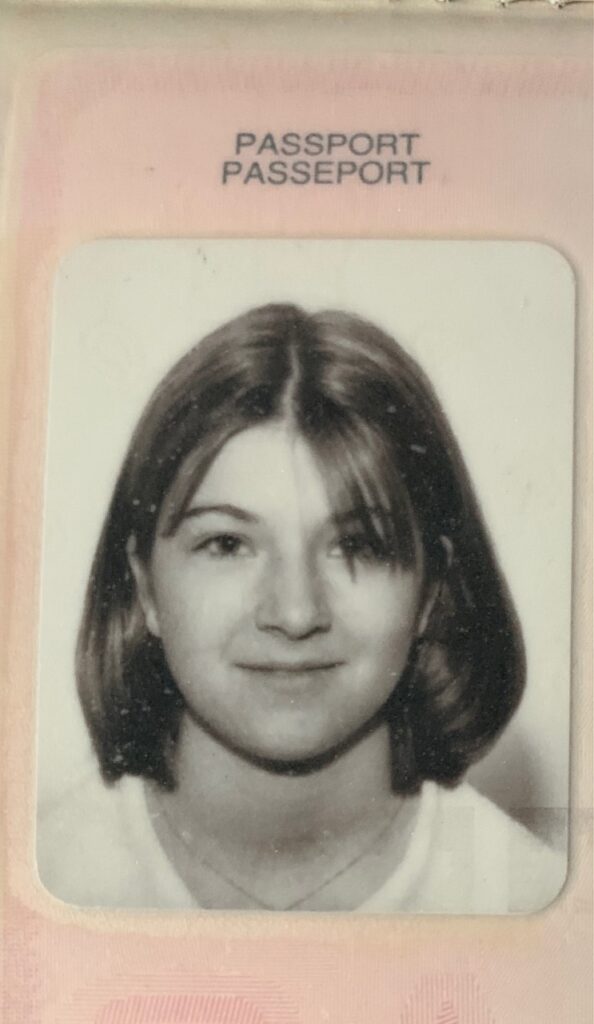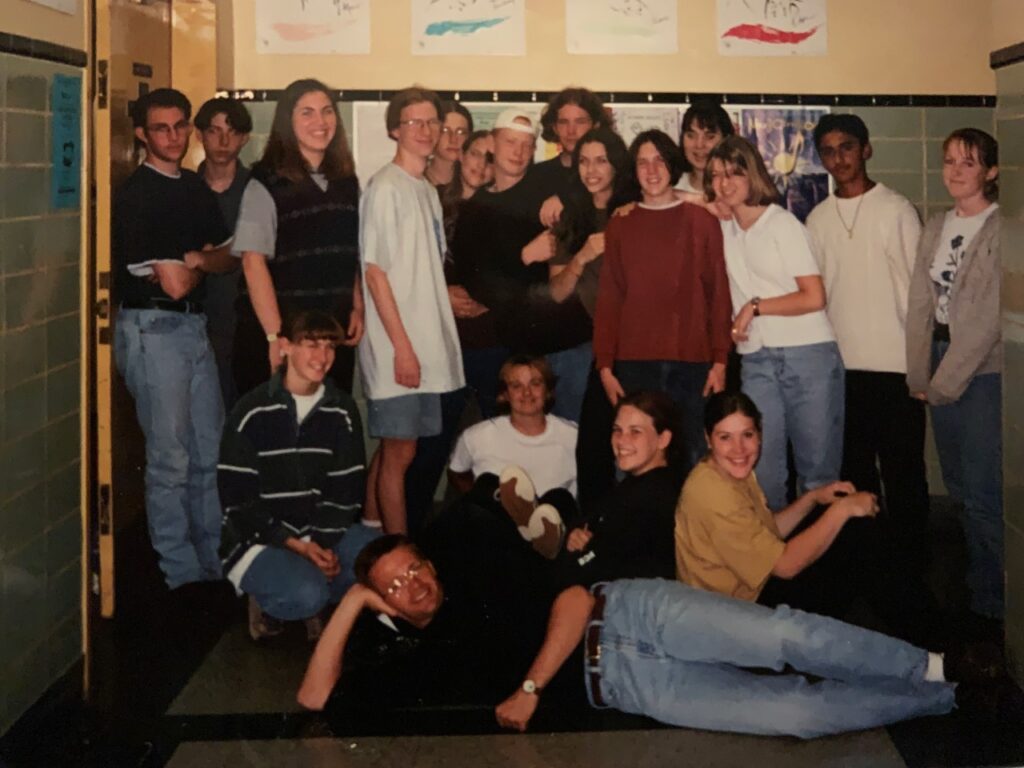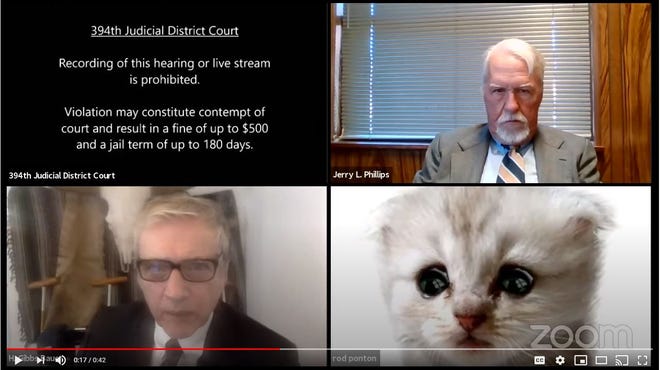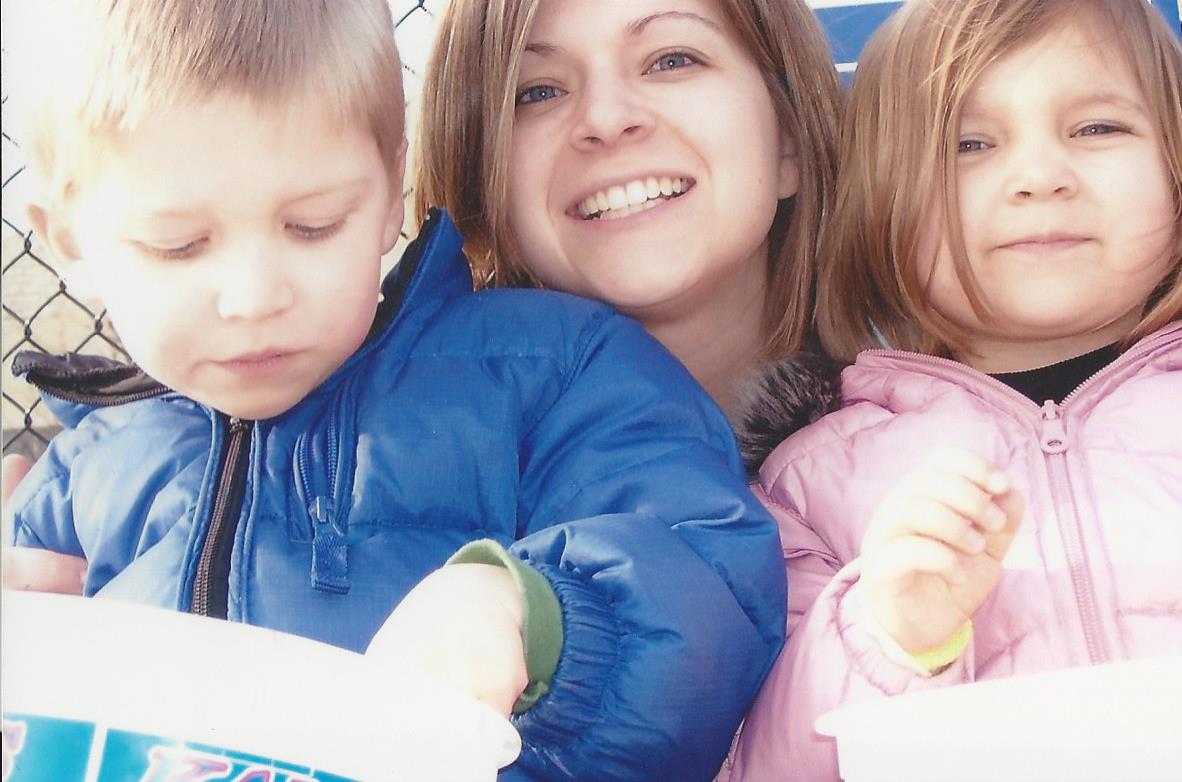
Little paper trails
I began my personal paper trail a few months shy of 16 years old. I got my first passport in June of 1996, and on August 5 of that year (I still have the original immigration visa stamp in that passport) my mom, sister, and I moved to the States to join my dad in Nebraska where he had started his new job a few months earlier. I remember sitting in the Coutts/Sweetgrass Border Patrol Building which straddles the border of Alberta and Montana where Customs officers scoured over the paperwork my mom had filled out for me and my sister. The room was small. Wood paneling. There was a portrait of Bill Clinton on the wall. We still had a long drive to Nebraska ahead of us.

I’ve been “processed” many times and paid many immigration fees over in the last 25 years. A few months after we moved to Nebraska, I received a US government-issued Social Security Card (with the disclaimer “valid for work only with INS authorization” to replace my no longer necessary Canadian Social Insurance Number. My “status” has changed over the years. I’ve been an H-1B dependent, an F-1 visa international student when I went to BYU, and finally, a permanent resident with a green card. Lots of paperwork to fill out, lots of fees for paperwork, lots of time at immigration appointments and interviews. I’ve had hiccups in paperwork along the way (when I got married and applied for my green card, they recorded my name wrong in the beginning of the paperwork and I had to wait until the final paper was signed before I could change my name back from “Savah” to its rightful “Sarah.” I’ve been monitored as an F-1 to make sure I didn’t work over the allotted hours of my visa. For more than half of my life I’ve had this paper trail.

In March 2020, we began J’s paper trail, just before he turned 18. Not an immigration one, but one allowing Steve and I to have guardianship over him. I’m going to try to explain the process for everyone, because we went into this 100% blind–not knowing anyone who has gone through this before.


We were awarded guardianship finally on March 29, 2021. COVID happened in the time between. There were long periods of time of waiting between paperwork submissions, so I feel like my memory is a little rusty in spots, but I chatted with Steve about it last night, and I’m sure now that I’ve got the facts straight on the whole deal. Here’s the TLDR of the whole experience just to make things a little easier for everyone.
- The Lawyer: We went online and just did a Google search for guardianship lawyers in Fargo. It was a little tough to shake out at first. Family Law doesn’t mean “guardianship” and child custody is not the same as guardianship either. We sat down with our chosen lawyer in the middle of March 2020 (right before “COVID got real” and shut everything down). We filled out some basic paperwork, paid a $3000 retainer (which is sort of a down payment for lawyer fees). Technically, the retainer is an estimate of how much the whole process is going to cost. Anything that doesn’t get used gets sent back to you. In our case, the lawyer used the retainer and we had to pay an additional $1000-$1500 to pay for the court visitors.
- Documentation for a Need of Guardianship: This document comes from a medical professional that can “testify” that the ward (J) is unable to care for themselves. This was absolutely the WORST part of the whole experience. J’s psychiatrist had moved from our hospital system (and I don’t know if was because of COVID or what, but she was impossible to track down). Next we requested a statement from J’s pediatrician, who was very hesitant to fill out this documentation, telling us that “allowing guardianship over a ward strips the ward of his/her rights and freedoms” and that he wasn’t sure if he could provide that documentation to the lawyer because J seemed “pretty functional” in the annual checkups (where he only sees J for about 5-10 min). We provided the dr’s office with school functional assessments, but the dr. still wasn’t comfortable relying on the assessments. He wanted an IQ test result for a “number” he could base eligibility on. J has never had an IQ test because everyone who has worked with J has expressed that an IQ test would be unreliable because J’s response levels are so unreliable from day to day. This went back and forth for about a month (between us sending school reports and the dr’s office trying to decide if they would accept it). Finally (and I can’t remember which evaluation convinced him), but the dr agreed to make the recommendation. The most frustrating thing about this step is that every person who knows J knows that this was a no-brainer. Heck, in one of the assessments, J stated that he expected to live with us until he was 76. At the same time I do understand the pediatrician’s hesitation. He doesn’t really “know” J the way everyone else does, and it’s his word that “strips J of his rights.” That’s a big deal. But it’s also so hard and demoralizing when you have to look at your child and pick out every weakness and flaw in him and sell to everyone, CONVINCE EVERYONE, on how incapable your child is, especially when you’ve spent the entire time as a parent trying to build him up and show everyone his strengths. This step absolutely sucked. So heads up, if you’re going through this, it’s rough.
- Online Training: The state of North Dakota requires that all individuals filing for guardianship participate in an online training course (I want to say this took like 30-45 min. Maybe it was an hour? It was about a year ago so I can’t remember for sure). I actually felt that this training was very helpful. The course isn’t just for parents of adult special needs kids, but includes individuals with all mental health issues that cause impairment for independent living. It also includes information for children seeking guardianship of their disabled elderly parents. It helps you understand where you can and cannot exert guardianship powers (If you don’t like your daughter’s boyfriend who is manipulating them, you can’t stop them from dating). There’s also “degrees” of guardianship. Some wards may still retain the right to vote, others may not. Some guardians may have power over money and health. Some may have power over just health and not money. That’s up to each individual, what kind of guardianship they are filing for, and how the court decides. The ward can also be reassessed every few years to determine if the level of guardianship is still appropriate.
- Paperwork: Much like my immigration paperwork, guardianship paperwork took forever. Outside parties are filing on your behalf, you’re filing your own paperwork to your lawyer. Steve had to follow up with our lawyer multiple times on the paperwork we sent them because we wouldn’t hear back for a while or they would email back saying they hadn’t received it (even after we sent it). I don’t know if that’s typical or it was because we were doing it in the worst part of the pandemic, but it was a real pain in the —. Despite the inefficiency (did you know the lawyer charges you for every email and phone call you make?) Steve and I both agree that we don’t think it’s something we could have navigated without a lawyer.
- Home Visits: We had two home visits (both visitors from the court if I remember correctly). These visitors came to see the ward (J) in person to make sure everything that was said about him in the paperwork was correct. This was also weird during COVID. This was before the vaccine was available and we had strangers in our house (who were also going to other houses) and you have no idea what their bubbles or exposures looked like. One visitor wore only a face shield–no mask, which made me super anxious (not like I was already anxious about the court visit anyway). J’s special ed teacher saved us because we needed an emergency social story to help J understand that he had to wear a mask in our house when there were visitors over (remember, this was at a time when NO ONE came over to our house). Anyway, each visit was about 30 minutes, and in the end was pretty painless.
- Court Date: When we first started this process, back in the lawyer’s office in March 2020, we were fully expecting to show up to a hearing in the courthouse. Of course, COVID necessitated the court hearing to be done over Zoom. Steve, J, and I sat in the guest bedroom in front of the computer (split 4 ways–the judge, our lawyer, the court appointed lawyer representing J, and us. It took about 3 minutes. J was asked if he was okay if his parents had guardianship over him (which he really didn’t understand what “guardianship” meant). It was rephrased to “are you okay with your mom and dad looking after you and taking care of your finances, etc.” J said yes, and it was done. A few weeks later, we got the official paperwork.

That’s how it happened. I feel like it’s a lot like my immigration paperwork. Necessary, but a pain. My immigration status requires me to follow up with immigration officers every few years. Steve and I will have follow up interviews and statements with the court once a year to make a declaration of J’s finances, etc.
It seems so funny to me that there are some of us who move through this world and don’t have to think twice about carrying around paperwork to legitimize their existence or their rights and then there are some of us who do. My immigration status and J’s guardianship status may change over time, but for now, both of us have got our little paper trails.




